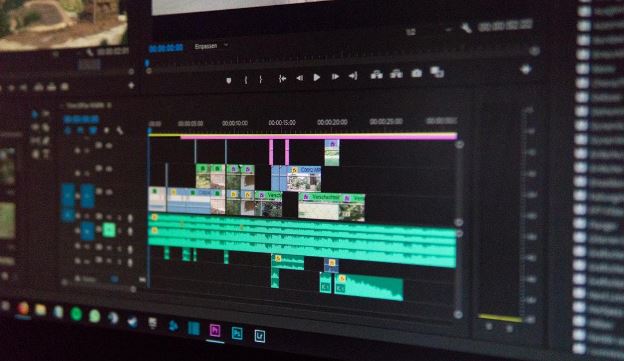How does earning $54 million with over 10 billion views and ~90 million subscribers sound to you? For YouTuber MrBeast this is his reality. That’s a pretty sweet gig if you ask us.
What if you’re more of a behind-the-scenes type of person though? If the limelight isn’t for you, what can you do to be a part of the team?
Edit videos.
As a video editor, you can express yourself and push the story along. If you’re curious about how to become a video editor, then this guide is for you. Read below to learn what you need to do to get started.

How to Become a Video Editor
Your path as a video won’t be the same as the next guy. Video editing careers largely depend on what you’re after—in-house or freelance.
In-House:
If you’re searching for stability in your video editing jobs, then find a full-time in-house position. You can expect to earn ~$29/hr or ~$60,360 annually.
Freelance:
If you favor the feeling of being your own boss, then editing videos as a freelancer is for you. You’re in charge of finding clients, catering to their needs, and being compensated fairly and on time.
Many video editors prefer the freedom freelancing provides. Download this free video editing software to get started.
Video Editing Jobs:
Other things play in the picture too like if you have a degree or not, and the types of productions you’d like to be a part of. No matter what route you take as you learn how to become a video editor, the key will be to gain as much experience as you build your portfolio.
Scripted TV:
Scripted TV also includes films (studio and independent), sitcoms, etc. Making the producer happy is the end goal. Your job is to carry the story, evoke emotion from the audience, and keep engagement up.
Unscripted TV:
Many talk shows, game shows, and reality shows won’t have a script. Learning how to become a video editor in unscripted tv is interesting because you have to “manipulate” the story in some way.
Through editing videos, you will achieve this by combing and culling through the footage and piecing them together in such a way that pulls at the audience’s heartstrings.
News:
Does journalism and working in a fast past environment interest you? If so, then apply to be a part of a newscast. You will learn how to edit videos from the newscasts as well as work on the live set.
Documentaries:
Documentaries combine the best elements of all of the above. Using the footage (b-roll, found footage, interviews, etc.) you can begin to tell the story. You want to be sure to get the message across clearly to the viewer.
These days, anyone with a smartphone is technically a documentarian.
What Are Your Options Without a Degree?
Don’t let not having a degree stop you from your career as a video editor. In many ways, learning how to become a video editor without one will be even more rewarding and engaging.
YouTube:
Let YouTube be your education both by watching editing videos and editing and uploading videos on your channel. Once you gain a following you will be even more motivated to keep going and learning more. You could even turn it into a career as a YouTuber.
Edit Something Today:
The best advice we can give you s you learn how to become a video editor on your own is to simply start editing. Once you get the hang of it, you can always add new techniques to your toolbox.
To continue learning your path to becoming a video editor, you’ll want to stick around. Our blog has everything you need to pursue this path for years to come.
Posts You May Like:




